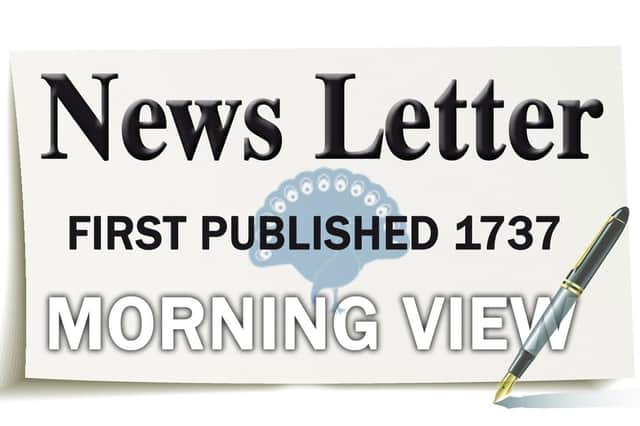Pay must keep pace with cost of prices over time but excessive wage rises make inflation worse


That appreciation was made visible in the weekly applause for them during the pandemic, and in the priority that people place on the UK's National Health Service.
Yet there are problems with how health is delivered across the nation, particularly in Northern Ireland. Some of it is due to structural and demographic challenges, such as the fact that people are living longer. But pressures on staff are often caused by other issues, such as Stormont's two-decade long refusal to reform health provision, as repeatedly urged by experts. It is wrong, therefore, to say that the problems in the NHS are principally related to pay.
Advertisement
Hide AdAdvertisement
Hide AdYesterday, Unison and Nipsa union members began industrial action, currently short of strike action.
Anne Speed of Unison told BBC’s Good Morning Ulster radio programme that the union wanted an "inflation-busting pay rise" for its members.
"What it means is inflation is 11%, and a pay rise actually has to match that in order to protect workers," she said. "What's being awarded is only half of inflation, and health workers are just frustrated, fed up, very disappointed and they're choosing to speak out now."
This is misleading. Inflation has spiked due to factors including the Ukraine war. Many economic forecasters expect it to fall away. Already fuel bills are notably lower than months ago.
Advertisement
Hide AdAdvertisement
Hide AdIf all workers, public and private sector, got 11% pay rises the inflationary spiral would worsen. But private sector workers are always likely to get less of a rise than public, yet their taxes help fund the pay of the latter.
Incomes should track inflation, and usually do. At this abnormal time it might briefly need to fall a bit behind if we are to avoid creating 1970s-level price rises.